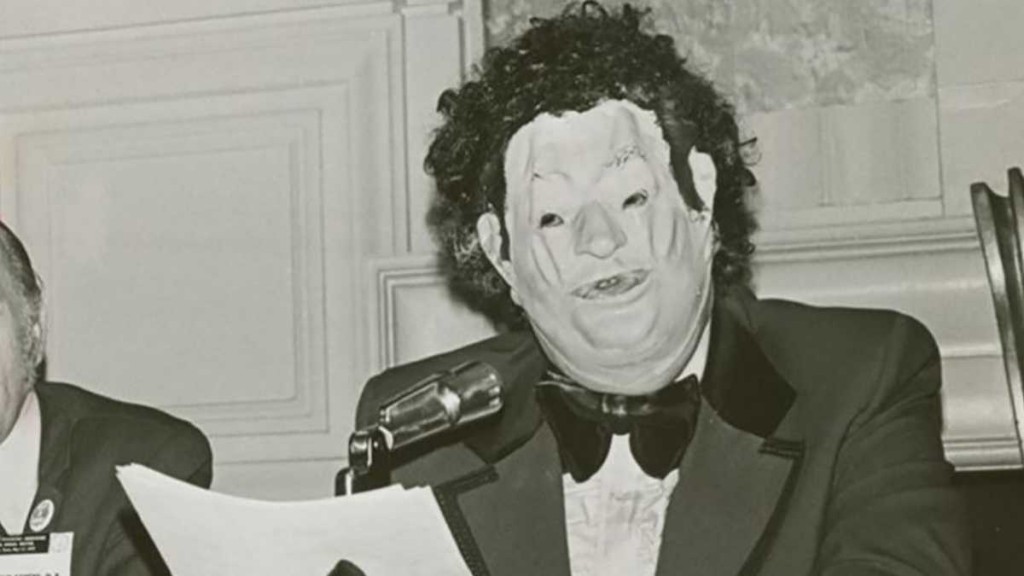Dr. John Ercel Fryer “…dons the mask to destroy the mask.” ~ Ain Gordon’s, Alfred A. Gross

An extraordinary story of conviction and courage, Ain Gordon’s compelling new work takes stage among a cleverly conceived catacumbal graduation of gray archival boxes. The boxes contain the recorded life of pioneer Dr. John Ercel Fryer, a practicing psychiatrist and a homosexual at a time when the American Psychiatric Association deemed homosexuality a “mental disorder”.
Against a video backdrop featuring Fryer in 1972 addressing the issue at an APA conference masked as Dr. Henry Anonymous, three characters culled from numerous document boxes limn the imagination as they bring to life various aspects of Fryer’s humanitarianism, dedication and accomplishments, illuminating the role he ultimately played in overturning the APA’s classification the following year. Gordon spent two years combing the contents of Dr. Fryer’s files held at the Historical Society of Pennsylvania, gleaning the valuable insights shared in this outstanding look into how historical events and one remarkably stalwart individual shaped our world as we now know it.
Alfred A. Gross, fervently, tenderly, portrayed by Derek Lucci, is the first historical character to traverse the stage. He was executive secretary to the George W. Henry Foundation in NYC, and was instrumental in gathering a young Dr. Fryer in the effort to assist homosexual men who were “in trouble with the law”. Through his riveting monologue, an overview is given of twenty-something-year-old psychiatrist from the Midwest (Fryer) and cultural views within and without the LGBT community in the 1960s.
Further insight into the doctor’s dedication is gained through Katherine M. Luder, Fryer’s plucky secretary, played with much expert aplomb by lovely Laura Esterman. Luder served the doctor for 24 years until her death at the age of ninety-one.
Ercel Fryer, the doctor’s father and the third character to rise up from the records, is imbued with moving stoicism, understanding, and quiet intensity by Ken Marks. Ercel, a blue collar worker born in 1901, an era in which people tended to internalize, keeping much inside, did not in life acknowledge his son’s sexuality, but augmented by video, his character here shares some of his son’s speech with the audience. Although he had written only nine letters to his son John, in this well wrought historical narrative, Ercel signs off, as if within a touching tenth letter, “Love, Daddy…”.
As written and directed by Ain Gordon, each actor enhanced role shines forth from the simple, elegant set, under Nick Ryckert’s vibrant video and lighting design, reflecting a piece of the past that has become part of our future.
Co-produced by Pick Up Performance Co(s), Historical Society of Pennsylvania [Painted Bride Art Center, 230 Vine Street] May 5-7, 2016; paintedbride.org
